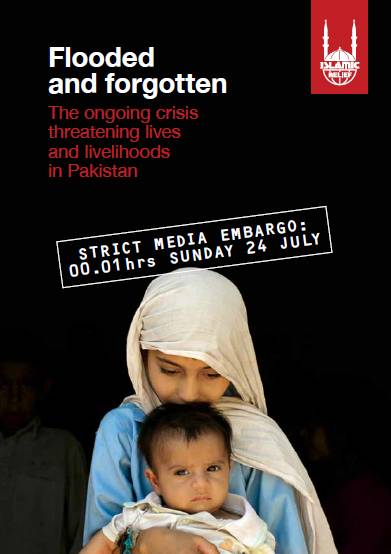
The ongoing crisis threatening lives and livelihoods in Pakistan
Last summer I saw for myself the devastating impact of the worst floods ever experienced in Pakistan. Over 18 million people were affected, 11 million of whom were forced from their homes. Houses were destroyed, livelihoods lost, hopes for the future shattered.
Islamic Relief first provided tents, food and other emergency aid, then moved into a major programme of reconstruction. Our work has so far reached 585 villages, benefiting 428,000 people. Our involvement is an expression of the sense of justice and compassion that our faith inspires in us. “If anyone saved a life,” says the Qur’an, “it would be as if he saved the life of the whole of mankind” (5: 32).
Our approach to reconstruction has been to avoid spreading ourselves too thinly so that we can make a lasting difference where we work. We are completely rebuilding 95 villages and other small settlements: training people to construct their own flood and earthquake-resistant houses; repairing health clinics and dispensing free medicines and treatment; restoring schools and farming; and providing new latrines, drainage systems and clean water supplies.
Despite the positive impact of this work, commended in a recent evaluation by the Disasters Emergency Committee (DEC), what we are now seeing on the ground is just as disturbing as what we witnessed last year. Millions of people in the flood-affected areas are still in need of health care, food and shelter. The floods have receded, but the sense of crisis has not. The monsoon season is now upon us, and people who were already poor have been made extremely vulnerable by the previous floods and the inadequate international response. The UN is warning that up to six million people could be affected by new floods.
Office
http://www.islamic-relief.org.uk/
Citation
Islamic Relief UK [n.d], ‘Flooded and forgotten.’ [online] Available:http://www.islamic-relief.org.uk/






